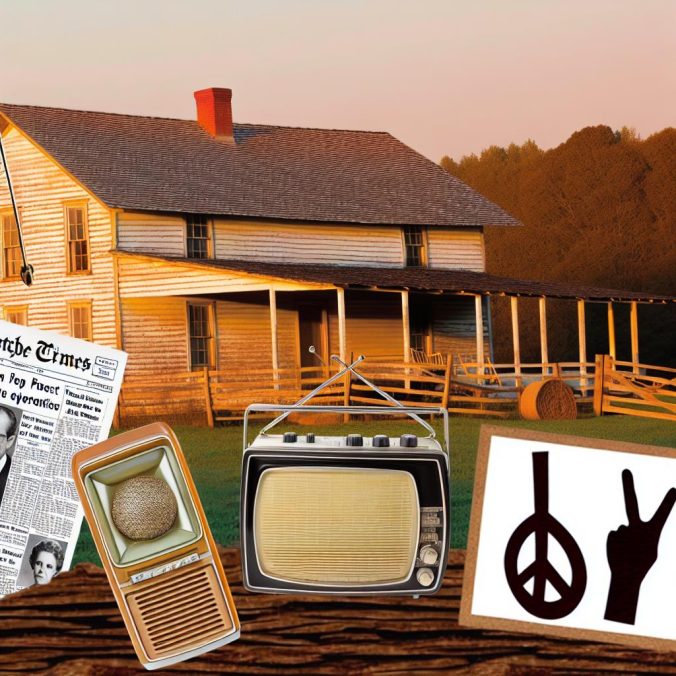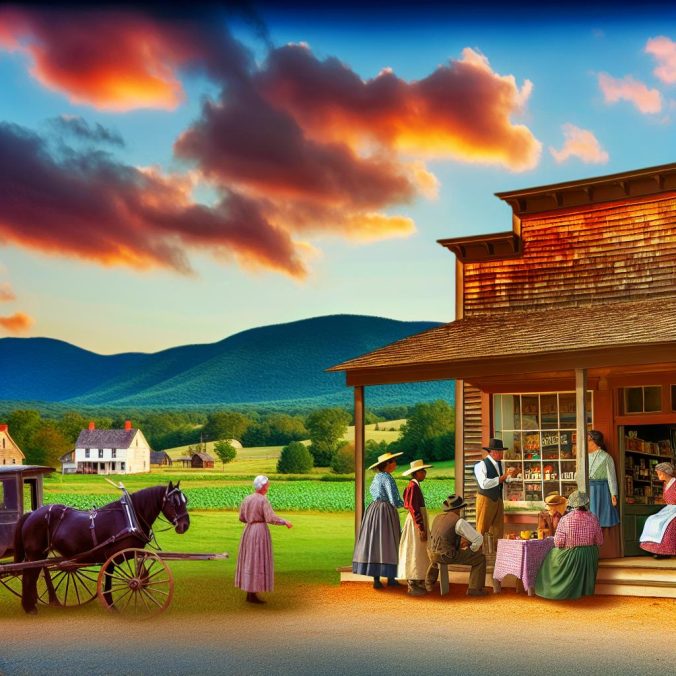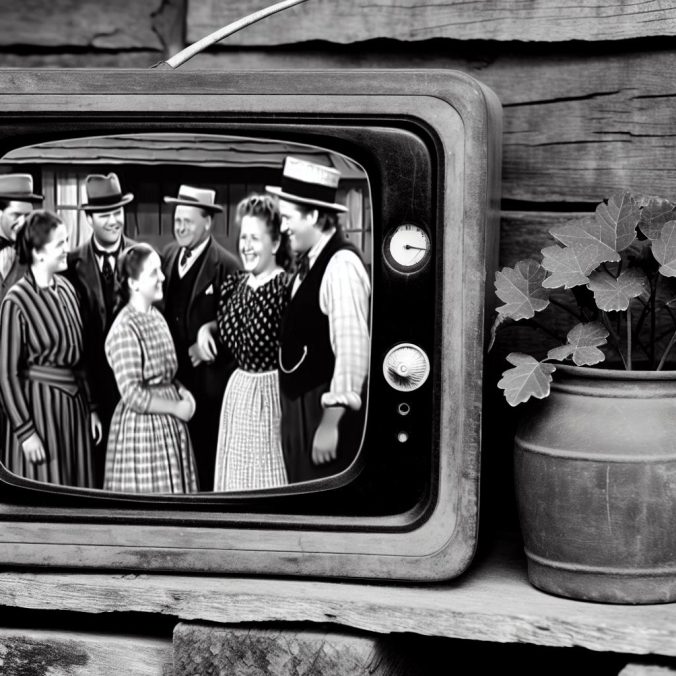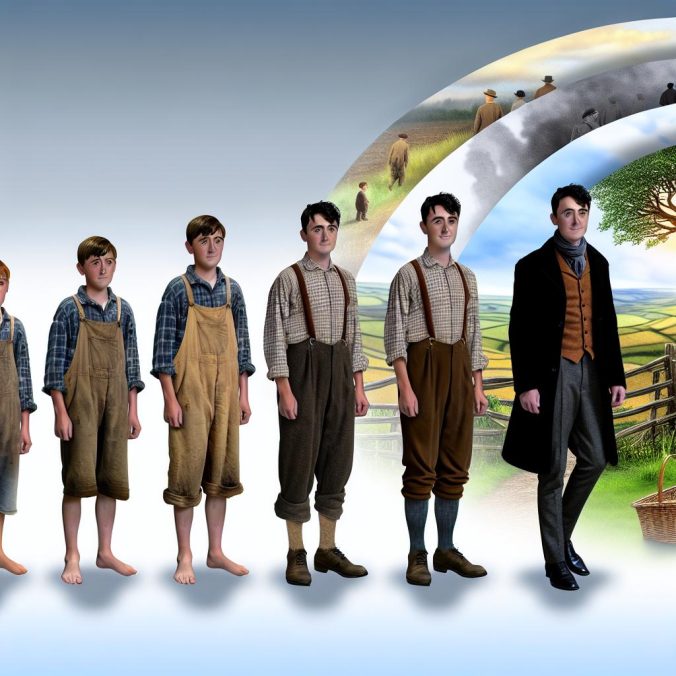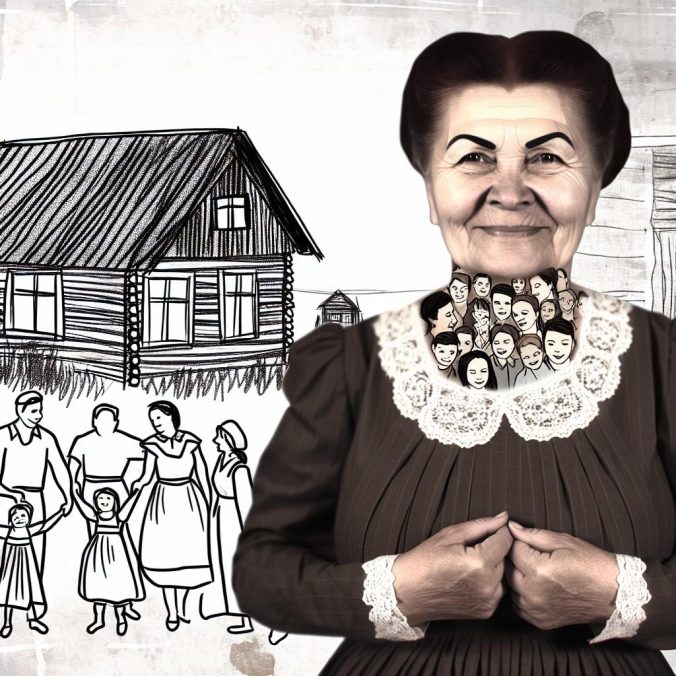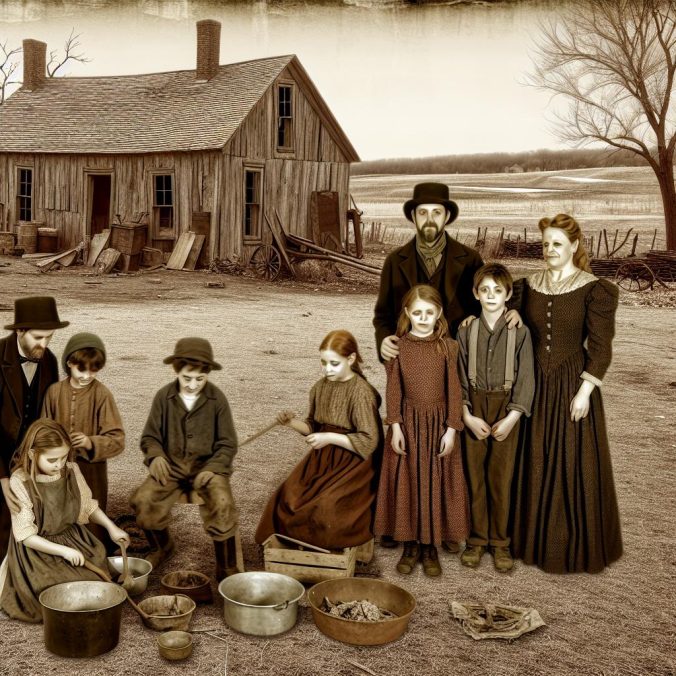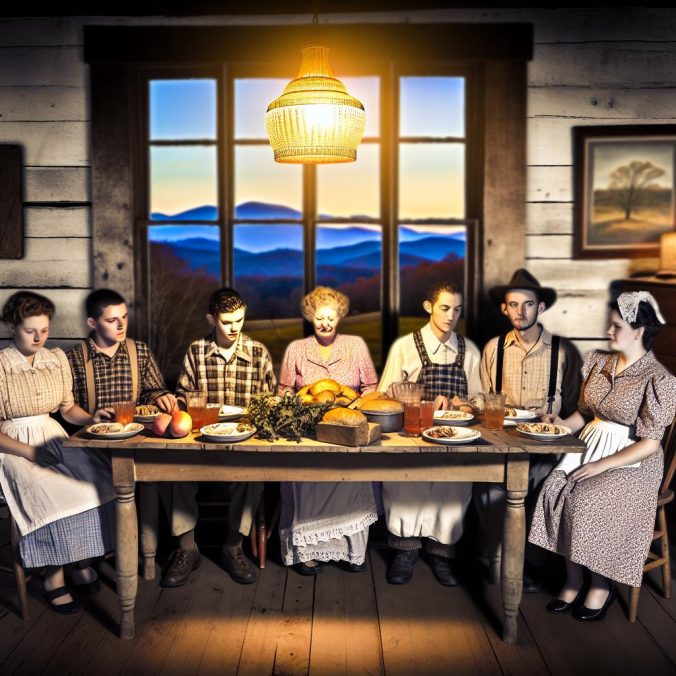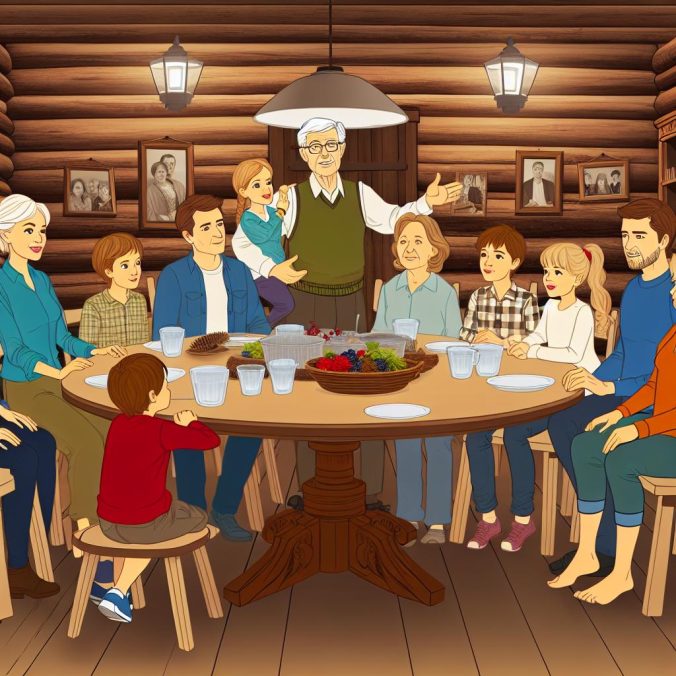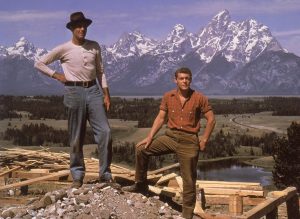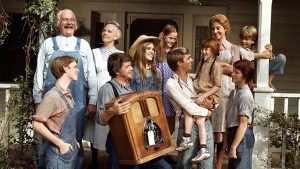Introduction to The Waltons
The Waltons was a popular American television series that aired from 1972 to 1981. Created by Earl Hamner Jr., the show was set during the Great Depression and World War II. It centered around the Walton family, who lived on Walton’s Mountain in Virginia. Though the series is often remembered for its nostalgic and heartwarming depiction of family life, it also addressed several significant social issues of its time.
Depiction of Economic Hardships
The series offered an authentic portrayal of the economic challenges faced during the Great Depression, illustrating how the Walton family and their community worked together to overcome financial struggles. This was an essential element of the show, as it highlighted the importance of resilience and community support during hard times. By focusing on the financial difficulties of the era, the show managed to resonate with audiences who had similar experiences.
The economic hardships explored in The Waltons were depicted through various storylines that demonstrated frugality, resourcefulness, and entrepreneurship. This depiction was particularly poignant since the Waltons had to rely on their land and skills to sustain their large family. Farming, running a sawmill, and other self-sufficient activities were prominently featured, showcasing the laborious yet rewarding lifestyle the family led. By illustrating these aspects of life, the show offered viewers an opportunity to reflect on their own experiences and appreciate the determination required to survive during those challenging times.
Gender Roles and Feminism
Though set in a time when traditional gender roles were prevalent, The Waltons presented progressive views on feminism. Female characters such as Olivia Walton, played by Michael Learned, and Mary Ellen Walton, portrayed by Judy Norton, often challenged societal norms. Olivia, for instance, was not merely a homemaker but also someone who voiced her opinions on important matters. Mary Ellen pursued a career in medicine, showing that women could aspire to professions traditionally dominated by men.
Olivia Walton’s role as a strong matriarch in the family was significant in challenging the conventional expectations of women during that time. Her character exemplified the balance she maintained between household responsibilities and being an equal partner in family decisions. Similarly, Mary Ellen Walton’s aspiration to become a nurse was a direct reflection of the changing perspective on women’s roles, inspiring viewers to embrace broader horizons for women. Through these character arcs, the series subtly encouraged its audience to question the rigid gender norms and advocate gender equality.
Race Relations and Tolerance
While the community of Walton’s Mountain was predominantly white, the show occasionally addressed issues of race and tolerance. For example, certain episodes dealt with African Americans and their fight for equality, emphasizing the importance of mutual respect and understanding among different communities. Such storylines aimed to promote racial harmony during a period when civil rights discussions were prominent in American society.
The show did not frequently delve into racial issues, but when it did, it did so with sensitivity and foresight. These storylines were crafted to foster empathy and awareness among the viewers, often presenting situations that called for introspection and recognition of racial injustices. By portraying African American characters with agency, who were integral parts of their community despite the broader societal prejudices, the series contributed to the discourse of racial equality and underscored the importance of diverse voices and experiences.
Environmental Conservation
The series also addressed environmental conservation, as the Walton family lived closely with nature. Episodes highlighted the importance of preserving the environment and respecting natural resources. This perspective was forward-thinking, given that widespread environmental awareness was still emerging during the show’s original broadcast period.
Through the Waltons’ interactions with the land and reliance on its resources, viewers were taught the importance of conserving nature. Episodes dealing with the exploitation of natural resources often served as cautionary tales, reinforcing the notion that harmony with nature was crucial to sustaining life. By depicting the family’s respect for their environment and their mindful utilization of resources, The Waltons played a role in shaping evolving attitudes toward environmental stewardship.
The Role of Religion and Faith
Religion and faith were recurring themes in The Waltons, reflecting their role as cornerstones in the lives of many during the 1930s and 1940s. The series explored the way faith provided comfort and guidance to the Walton family during periods of trial and uncertainty. This aspect of the show resonated with audiences who also found solace in their beliefs during challenging times.
Throughout the series, the portrayal of faith was nuanced, presenting it not only as a source of strength but also as a framework for the family’s ethics and values. The characters frequently turned to their faith in times of crisis, seeking guidance and solace amidst their struggles. Church gatherings, moments of prayer, and discussions of morality were integral elements, providing viewers with relatable scenarios that underscored the importance of faith. This thematic exploration highlighted faith as an enduring aspect of cultural identity, binding the community and offering a sense of hope and unity.
While The Waltons is remembered for its portrayal of a simpler time, its engagement with critical social issues like economic challenges, gender roles, race relations, environmental conservation, and the role of faith all contributed to its enduring popularity. The show’s ability to address such topics in a nuanced and sensitive manner made it relevant not only during its original broadcast but also in continued viewings in subsequent decades.
By intertwining storytelling with these significant social themes, The Waltons went beyond entertainment, functioning as a reflective piece that encouraged audiences to ponder and engage with ongoing societal dialogues. Its legacy remains impactful, as it advocated for understanding, compassion, and progress in a world that was constantly evolving. Through its rich character development and thoughtful representation of pertinent issues, the series continues to stand as a testament to the resilience and unity of the human spirit.
